Duc Giang General Hospital (Hanoi) said that recently, the hospital's doctors successfully treated a 4-year-old patient who was in a coma due to diabetic ketoacidosis.
The patient is D.Q, 4 years old, living in Long Bien District, Hanoi. In the 3 weeks before being admitted to the hospital, the child lost about 3 kg and urinated frequently at night. The child was admitted to the hospital due to cough, fever, phlegm, wheezing, shortness of breath, and fatigue.
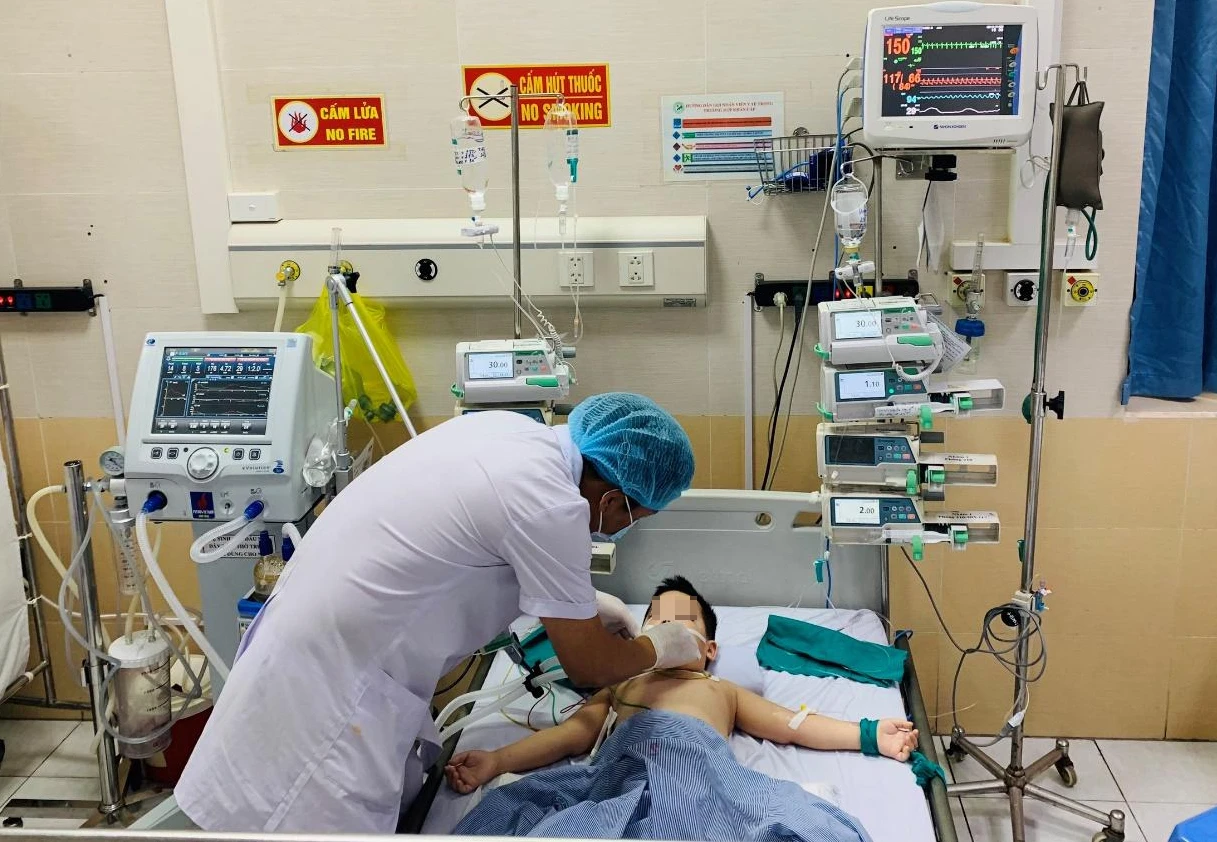
A 4-year-old patient with diabetic ketoacidosis coma was given emergency treatment at Duc Giang General Hospital.
At the hospital, the child appeared increasingly tired, breathing rapidly, and exerting more effort. Doctors from the Pediatrics Department and the Pediatric Intensive Care Unit consulted and assessed the child's rapid breathing as disproportionate to lung damage and ordered blood gas and blood sugar tests.
The results showed that the patient was in a state of severe ketoacidosis with a very high blood sugar level of 37 mmol/l.
Diabetic ketoacidosis is a serious complication of diabetes that occurs when a person's body produces too much acid in the blood (called ketones).
The patient was transferred to the hospital's Pediatric Intensive Care Unit. Here, the on-duty team quickly intubated and actively controlled the patient's airway. Along with that were active resuscitation measures including fluid replacement, continuous intravenous insulin infusion to reduce blood sugar, correct acid-base imbalance, and electrolyte disturbances.
After 3 days of intensive treatment, the child is now fully awake, breathing on his own, starting to eat and drink, and blood sugar control measures have been switched to subcutaneous insulin injection regimen.
MSc.-MD Hoang Van Ket, Head of the Pediatric Intensive Care Unit, said that diabetes in children is mainly type 1 diabetes, which is insulin-dependent diabetes. Although diabetes in children is rare, complications of ketoacidosis coma like the child above can progress severely if not detected early and treated promptly.
The difficulty with the above child patient is that the diabetes was not detected at first, and by the time it was detected, the child was already in a very serious condition.
"When parents discover that their children are drinking a lot of water, urinating a lot, and losing weight in a short period of time, they should take their children to the doctor to detect diabetes early, receive proper treatment, and avoid serious complications that may occur," Dr. Ket noted.
According to the National Children's Hospital, diabetes is a condition of high blood sugar (fasting blood sugar above 7 mmol/l and after meals above 11 mmol/l). In children, type 1 diabetes is most common.
Complications of diabetes can affect major organs in the body, including the heart, blood vessels... Maintaining normal blood sugar levels in patients significantly reduces the risk of many complications.
Source link






![[Photo] "Beauties" participate in the parade rehearsal at Bien Hoa airport](https://vstatic.vietnam.vn/vietnam/resource/IMAGE/2025/4/11/155502af3384431e918de0e2e585d13a)

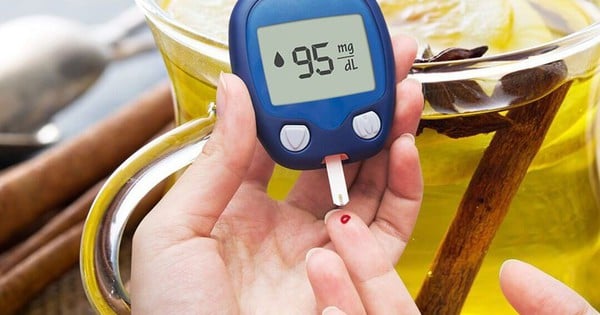


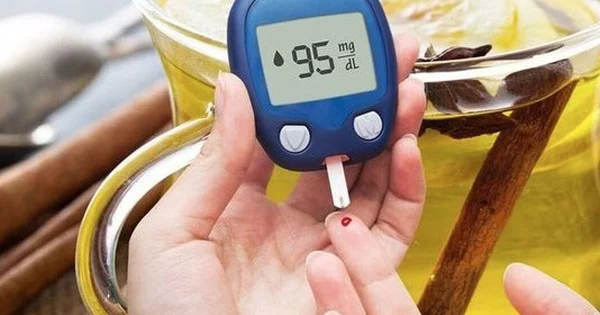









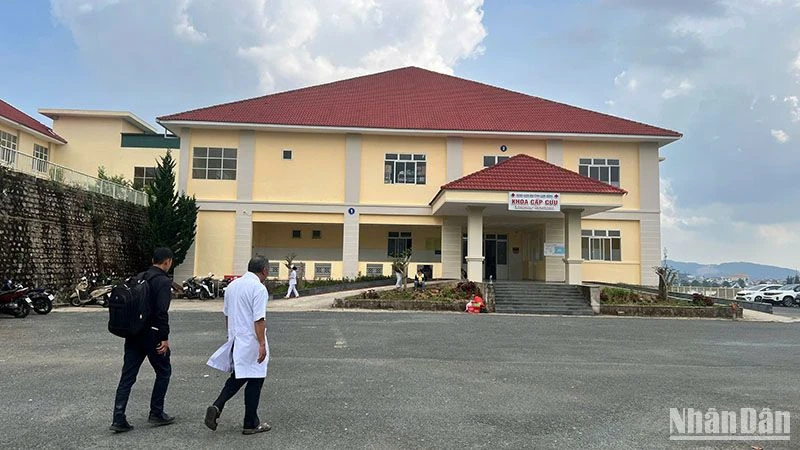






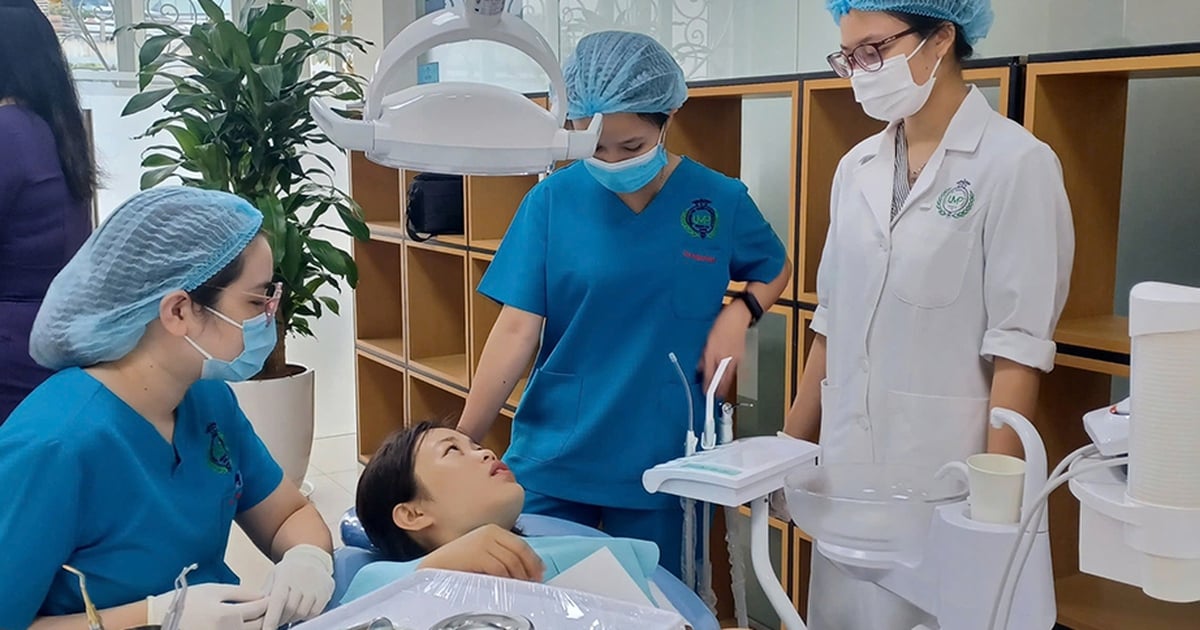

![[Photo] Summary of parade practice in preparation for the April 30th celebration](https://vstatic.vietnam.vn/vietnam/resource/IMAGE/2025/4/11/78cfee0f2cc045b387ff1a4362b5950f)
![[Photo] Looking back at the impressive moments of the Vietnamese rescue team in Myanmar](https://vstatic.vietnam.vn/vietnam/resource/IMAGE/2025/4/11/5623ca902a934e19b604c718265249d0)




























































Comment (0)